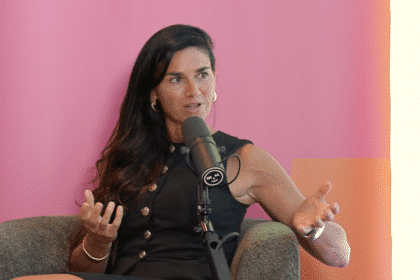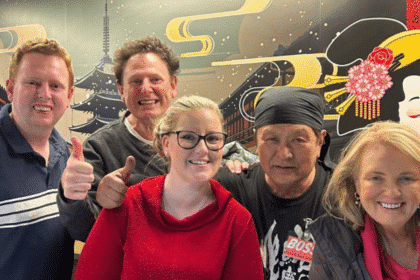Sport is worth more than $8.5bn to the Australian economy and bookmakers have moved to cash in on Australian fans. But have they pushed too far? As an enquiry into advertising gambling kicks off, Jessica Kennedy discovers that they risk strangling the golden goose.
The stakes are high in the contest for the hearts and minds, or in this case the dollars, of Australian sporting fans and the sports betting firms have risen to the challenge. In one year alone eight of the country’s top spending online sports gambling companies outlaid a whopping $46.5m on main media advertising, Nielsen estimates.
These deep pockets have seen Australia’s two most popular codes, the AFL and NRL, become overrun by gambling sponsors. But have the betting firms had one punt too many?
“They are cooking the goose that laid the golden egg before our very eyes,” says Steve Allen, media analyst and principal at Fusion Strategy.
Rather than learn from the experiences of the tobacco and alcohol industries before them, Allen says the gambling companies have “polluted” sport, and he is not alone in his opinions.
“Insidious”, “excessive”, “sickening” and of “farcical proportions” are the terms football fans have used to describe gambling advertising during television broadcasts of the AFL on popular forum, Big Footy.
Now, a big red bullseye has been drawn on the industry. On the same day that the reputation of Australian sport was plunged into the depths under a tsunami of revelations linking our most popular codes to match fixing, organised crime and drugs, the Senate passed a motion for an inquiry into the advertising and promotion of gambling services in sport.
The Greens-created inquiry will see a joint select committee look at sponsorship, venue and broadcast advertising, in-game promotions and gambling commentary.
The inquiry will also look at whether greater levels of advertising have led to more problem gambling and the effect gambling ads have on children.
“Kids are finding it very difficult to understand where a game of footy ends and gambling begins,” Green’s Senator Richard di Natale said in a statement. “If we fail to act now to protect our kids, we risk creating another generation of problem gamblers.”
The effect on children is a major concern for lobby group GetUp!. “Gambling is an adult behavior, it is an adult activity and something that only adults should be doing,” GetUp!’s spokesperson told B&T. “So why on earth are we allowing it to be advertised during G-rated programming?”
In practice, advertisements for gambling services are not supposed to run during the G-rated time periods of 6am-8.30am daily, between 4pm and 7pm on weekdays and 4pm and 7.30pm on weekends.
However, those restrictions do not apply to sports, news or current affairs programs. This loophole is something GetUp! is keen to see rectified.
Last year a report, commissioned by online bookmaker Sportsbet, found that sports betting was growing at a rate of 13% a year with turnover estimated at $3.3bn compared to racing wagering’s $20bn.
Of that $3.3bn, betting on the AFL generated turnover of approximately $900m while NRL gambling produced $750m.
While the Greens have said the aim of the advertising inquiry is not to ban gambling companies from promoting their wares, if it results in tough restrictions it holds the potential to impact bookmakers’ bottom lines.
In turn, the inquiry could have mammoth ramifications for the sporting organisations and their broadcasters with the $45m that wagering operators are estimated to invest in NRL and AFL product fees, sponsorship, media promotion and advertising annually, sure to dry up.
As Andy Wright, general manager of Interbrand Sydney, explains, if one party hurts the other will too. “If I’m a betting company and I am not able to get the audience that I need on TV to be able to make it worthwhile me paying for advertising then I pull my advertising and stick it somewhere else.”
Both the AFL and the NRL are sponsored by betting companies, with the AFL in bed with TAB Sportsbet while Tom Waterhouse reportedly banks on the NRL.
In addition to this, only three of the AFL’s 18 clubs did not have a connection to a betting agency last year and a number of the NRL’s clubs also have official betting links.
For Allen, the fact that a bookmaker can sponsor a team, code or event is “neither here nor there”; the real issue is the “overstimulation of the viewer or listener with the constant pumping of gambling odds”.
“I certainly have a deep worry that the telecasters have just lost their way. They don’t know what is reasonable. There is no balance.”
Alex Blaszczynski, director of the Gambling Treatment Unit at the University of Sydney, told B&T it is the discussion of odds among “so-called respected sports commentators” that really legitimises and normalises betting as part-and-parcel of sport.
“There is nothing wrong with advertising sports betting if it is done within the appropriate channels, and that is commercials. But we need to exclude commentary and displaying odds as part of sports broadcasts.”
At the urging of the Federal Government last year commercial radio, television and subscription broadcasters committed to developing voluntary codes to measure and reduce the promotion of live odds during sporting events.
Julie Flynn, chief executive of Free TV Australia, said: “The agreement includes banning sporting commentators from mentioning live odds, and banning all live odds promotions during play.
“Free TV anticipates that its Code amendments regarding live odds in sports broadcasts will be available for public consultation in the near future.”
The changes need to be sooner rather than later for Allen, who believes networks risk losing their audiences as they fill their broadcasts with “puerile stuff that takes away enjoyment”.
“If you forget why people are watching, you can only expect to lose audience,” he adds. “The warning shot has gone over their bows. If telecasters aren’t taking notice of this, if they think that nothing has changed and that this will be a storm in a teacup, a month from now when the codes are back on air and they make no adjustment – they will be making a fatal mistake.”
Nine’s managing director Jeffrey Browne says the network is very aware of the sensitivities in the community towards live betting odds during broadcasts of actual play: “Our overall commitment is to preserve the integrity of the sporting codes we telecast and to work with various sporting bodies to ensure that remains sacrosanct.”
This article first appeared in the March 01 edition of B&T magazine.








